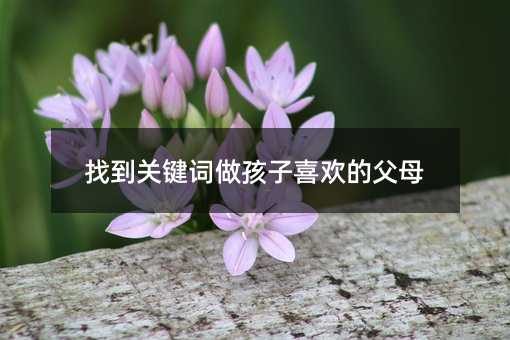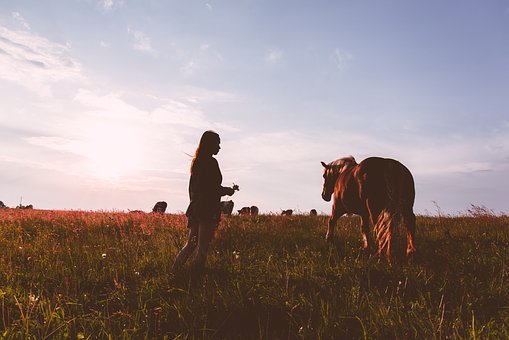Module 3 Food and drink
Unit 10 Healthy eating
要点汇总
1. healthy adj.=fit健康的,有益健康的,反义词unhealthy
e·g. It is healthy to have more fruit.
You look healthy today.
2. a little少量,一些,后跟不可数名词,a few修饰可数名词
e.g. We need a little sugar every day.
3. plenty of=a lot of很多的,很多,后面既可跟可数名词复数形式也可跟不可数名词
e.g. There are plenty of vegetables in the fridge.
There is plenty of milk in the fridge.
4. fit adj.=healthy健康的e.g. Tom keeps himself fit by walking.
v. 适合,合身e. g. The pair of shoes doesn't fit the little boy.
5. than conj. 比,用于比较级
e·g. Miss Li works harder than last year.
I like English better than Chinese.
6. as…as像……一样,好似……,中间用形容词或副词
否定形式:not as/so+原级+as
e.g. The boy is as tall as his father.
Tom runs as fast as Jack.
7. We need a little sugar every day.
need 作实义动词,“需要”:need to do sth. /need sth.
e.g. We need to wash our hands before dinner.
We don't need to hand the work today.
作情态动词,后面直接跟动词原形:need do sth.,needn't do sth.
e.g. We need do lots of exercise every day.
Jack needn't clean the class room today.
8. one...the other… 指两个中的“一个……另一个……”
e·g. I have two apples. One is for Mary, the other is for me.
another指三个或三个以上中的“另一个”
e.g. Can you show me another hat?
9. Your diet is less healthy than my diet.你的菜谱不如我的菜谱健康.
句中的less+愿级十than= not as/so+原级+as
e.g. My mother is less busy than my father.= My mother is not so busy as my father.
10. should modal verb应该,后面跟动词原形
e. g. We should help each other.
You shouldn't put the rubbish here and there.
Exercise One
I. Translate the following phrases into English. (翻译下列词组)
1. 一些脂肪_____________________ 2. 很多的蔬菜 _____________________
3. 很多米饭 ____________________ 4.一个不健康的饮食习惯_____________________
5. 和某人住一块 __________________
II. Choose the best answer. (选择最适合的答案)
1. We've got _________ rice ________ dinner today.
A. too many, for B. so many, in C. so much, in D. so much, for
2. Let's make some pizzas ___________ tomorrow's dinner.
A. with B. for C. at D. to
3. -Whose lemon tea is this?
-It's ______________.
A. Ben's and Kitty B. Ben's and Kitty's C. Ben and Kitty's D. Ben and Kitty
4. ___________ rice and vegetables will make a bad diet.
A. Too many, enough B. Too many, not enough
C. Too much, not enough D. Too much, enough
5. It is said that yogurt is _____________ than milk for people.
A. good B. better C. well D. best
6. Eddie has ___________ chips and __________ steamed chicken.
A. plenty of, a little B. a lot of, many
C. a little, much D. plenty of, a few
III. Rewrite the sentences as required.
1. He drinks some 7-up.
He ________ __________ __________7-up.
2. I've eaten __________ strawberry ice cream. (就画线部分提问)
_________ __________ strawberry ice cream _____________ you eaten?
3. Yesterday we went to visit Shanghai Museum.
Yesterday we ___________ ___________ to visit Shanghai Museum.
4. Mr. Lin had __________ for lunch. (就画线部分提问)
__________ __________ Mr. Lin have for lunch?
5. I like prawn best. (改为同义句)
Prawn is ___________ ___________ ______________.
Exercise Two
I. Fill in the blanks with the given words in their proper forms. (用所给单词适合形式填空)
1. The dishes are ___________.
2. It's ____________ to drink polluted water.
3. She has ___________ of pen pals from different ____________.
4. My brother has two ____________ .
5. How much ___________ did you use in this soup?
6. Learning to play computers is very ____________ for us.
7. I like fresh food better than _____________ food.
8. Peter only ate two __________ eggs for breakfast.
II. Choose the best answer. 1. She saw a film __________ Saturday evening.
A. at B. on C. in D. of
2. Tomorrow is Tuesday. Why _______ you go to school?
A. does B. not C. don't D. doesn't
3. She ____________ too much cola last night.
A. eat B. ate C. drink D. drank
4. Don't have ______________ sweets.
A. too much B. very much C. too many D. a lot
5. __________ sugar do you need?
A. How many B. How much C. How D. What
6. We need to have___________ vegetables and fruit every day.
A. a lot B. lots C. plenty of D. a little
7. What do you think __________ Mr. Lin's diet?
A. over B. with C. for D. of
8. It's not good to eat too much __________ food.
A. fresh B. fried C. boiled D. cooked
III. Fill in the blanks with the given words in their proper forms.
1. Michael often ____________ his homework before nine o'clock every evening.
2. My mother ____________ in a shop. She __________ at work now.
3. -Where are Ken and Kitty?
-They ___________ their things in the room. They __________ into a new flat this Sunday.
4. The teacher ___________ now. Let's __________ to her.
Exercise Three
I. Translate the following phrases into English. (翻译下列词组)
1. 健康的饮食 _____________________ 2. 少量,一些 ______________________
3. 很多的,充足的 ________________ 4. 新鲜的水果和蔬菜___________________
5. 好的饮食 ______________________ 6. 住在乡下 __________________________
7. 和某人待在一块 ________________ 8. 变得健康 __________________________
Ⅱ. Choose the best answer. (选择最适合的答案)
1. He will have a meeting ___________ tonight.
A. on B. to C. / D. in
2. There ____________ plenty of prawns in the market today.
A. are B. is C. have D. has
3. I would like _____________ for my breakfast.
A. to rice B. rice C. water D. to water
4. What _________ of _________ do you want?
A. kinds, car B. kind, car C. kind, cars D. kinds, cars
5. Our teacher always says "Don't eat _____________ junk food. "
A. to much B. too much C. too many D. lot of
6. _________you and she like the food my aunt cooks.
A. Both B. Neither C. Either D. all
III. Rewrite the sentences as required. (依据需要改写句子)
1. He would like __________ for his lunch. (就画线部分提问)
____________ would he ___________ for his lunch?
2. I'd like some vegetable soup, too. (改为同义句)
I'd _________ ___________ some vegetable soup.
3. Selling flowers can make a lot of money. (改为否定句)
Selling flowers ___________make __________money.
4. There will be fewer trees in the future if people cut down trees. (改为一般疑问句)
___________ ___________ be fewer trees in the future if people cut down trees?
5. Let's play games,shall we?(改为同义句)
_____________ ____________playing games?
Exercise Four
Reading comprehension. (阅读理解)
This is my first day in our new school. In the morning, I help my new teacher Mr.Liu put some new English books in a big box. And then I carry it to the classroom. The box is too heavy. I walk very slowly with it in my arms. A boy runs very fast to me. He can't sTOP. Oh, dear! The box drops on to the floor and the books are here and there.
"I'm very sorry," the boy says again and again. He helps me pick up all the books. Then he helps me carry the books to the classroom.
Who is he? He is my classmate, Tom. He comes to China with his father. He comes from England.
True or False(判断下列句子是不是符合短文内容,符合的用“T”表示,不符合的用“F”表示)
1. I'm a new student in the school.
2. I help my teacher to carry the box to the classroom.
3. Tom wants to help me carry the box, but I don't let him do it.
4. Tom's father is in China now.
5. Tom and I are not in the same class.
Mary is an American school girl. She is now in Beijing with her parents. She doesn't know Chinese, but she is trying to study and speak it. She often tries to speak Chinese to her Chinese friends. Sometimes they don't understand her, because she can't speak Chinese well.
It's Saturday morning. Mary goes out. She is on her there to see a flower show. But she doesn't know how to way to the park. She is going there to see a flower show. But she doesn’t know how to get there. She asks a Chinese boy. The boy can't understand her. Then she takes out a pen and some paper.
She draws flowers on it, gives the picture to the boy and says something about it. The boy smiles and then shows Mary the way to the park.
Choose the best answer. (依据短文内容,选择最适合的答案)
1. Where does Mary live now?
A. America. B. England. C. China. D. Canada.
2. She can speak ____________ Chinese.
A. much B. a little C. little D. a few
3. She likes __________ Chinese with her ____________.
A. speak, parents B. speaking, friends
C. speaks, girl friends D. speaking, teachers
4. Where is she going?
A. To a new school. B. To see her friends.
C. To a farm. D. To see some flowers.
5. How does she ask the way to the flower show?
A. She asks the way in Chinese. B. She asks the way with songs.
C. She draws a picture to ask the way. D. She doesn't ask any people.
Hundreds of years ago, the people in London got __________ from the city river. But later the river became very __________ because many factories were built near the river. People threw many things ____________________ the river. By the year 1830, the city was polluted. No fish could live in the water. And nobody could __________ the water. People tried their __________to change it. In 1960 the river became clean again, and in 1990, 78 different kinds of fishes were found in it.
Choose the best answer. 1. A. fish B. plant C. water D. oil
2. A. clean B. dirty C. beautiful D. wide
3. A. on B. at C. over D. into
4. A. drink B. eat C. pollute D. make
5. A. best B. better C. food D. on
Read the passage and fill in the blanks with the proper words. (依据首字母填空)
There are m__________ holidays in a year. Among them, the __________New Year is the most important to us. It is ____________________during the winter holidays. Sons and daughters all go back home. It's ____________________ for family to get together. There is a big __________on New Year's Eve. Children are especially happy because they can get a lot of __________ and pocket money from their parents and relatives.
_________ 2. ____________ 3. ____________ 4. ____________ 5. _________ 6. __________
Unit 10 Healthy eat:ing
Exercise One
I. 1. a little fat 2. plenty of vegetables 3. a lot of rice 4. an unhealthy diet 5. stay with sb.
II. 1. D 2. B 3. B 4. C 5. B 6. A
III. 1. doesn't drink any 2. How much, have 3. didn't go 4. What did 5. my favourite food
Exercise Two
I. 1. tasty 2. unhealthy 3. lots, countries 4. knives 5. salt 6. helpful 7. frozen 8. boiled
II. 1. B 2. C 3. D 4. C 5. B 6. C 7. D 8. B
III. 1. finishes 2. works, is 3. are packing, will move 4.is talking, listen
Exercise Three
I. 1. a healthy diet 2 a little 3. plenty of 4. fresh fruit and vegetables 5. a good diet
6. live in the countryside 7. stay with sb. 8. become healihy
II. 1. C 2. A 3. B 4. B 5. B 6. A
III. 1. What, like 2. also like 3. can't, much 4. Will there 5. How about
Exercise Four
A: 1. T 2. T 3. F 4. T 5. F
B: 1. C 2. C 3. B 4. D 5. C
C: 1. A 2. B 3. D 4. A 5. A
D: 1. many 2. Chinese 3. also 4. time 5. dinner 6. presents







